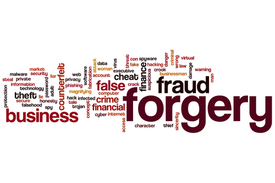
Do car dealer employees commit forgery? “It is like smoking a cigarette,” said one employee of a major Connecticut car dealership. This individual, a salesman who was upset with his employer, had agreed to talk with me about dealership practices. He confirmed what we have long suspected: car dealership employees sign customers names to documents all the time.
Sometimes a dealership views a forged signature as a harmless way to save time and avoid inconveniencing a customer. For example, a bank or a finance company might find a mistake in the way a contract was prepared and require that a new contract be signed. Dealerships sometimes have difficulty getting a customer to come back in, particularly if they are experiencing buyer’s remorse. So, the dealership may prepare a new contract and sign the consumer’s name.
Forgeries are always illegal. And, in many instances, dealerships commit seriuos auto dealer fraud when they forge signatures.
For example, sometimes the terms of the contract are changed. In one case that we are currently handling, a car dealer prepared a forged contract that contained a lower interest rate than the original, genuine contract. The bank funding the deal had apparently set a limit on the interest rate that the dealership had exceeded. Rather than simply prepare a new contract that would save the customer money, the dealership raised the price of the car and other “extras”, resulting in a higher loan amount.
How to Protect Yourself: Consumers should look carefully at their first account statement from the bank or finance company. Compare the opening account balance to the amount financed in the contract. If the account balance has changed, there might be a forgery. Consumers should also confirm that the due dates and payment amounts have not changed. If anything seems wrong, consumers should call the bank and ask for a copy of their contract. If you discovery that you have been a victim of forgery, you should contact an experienced attorney immediately.
